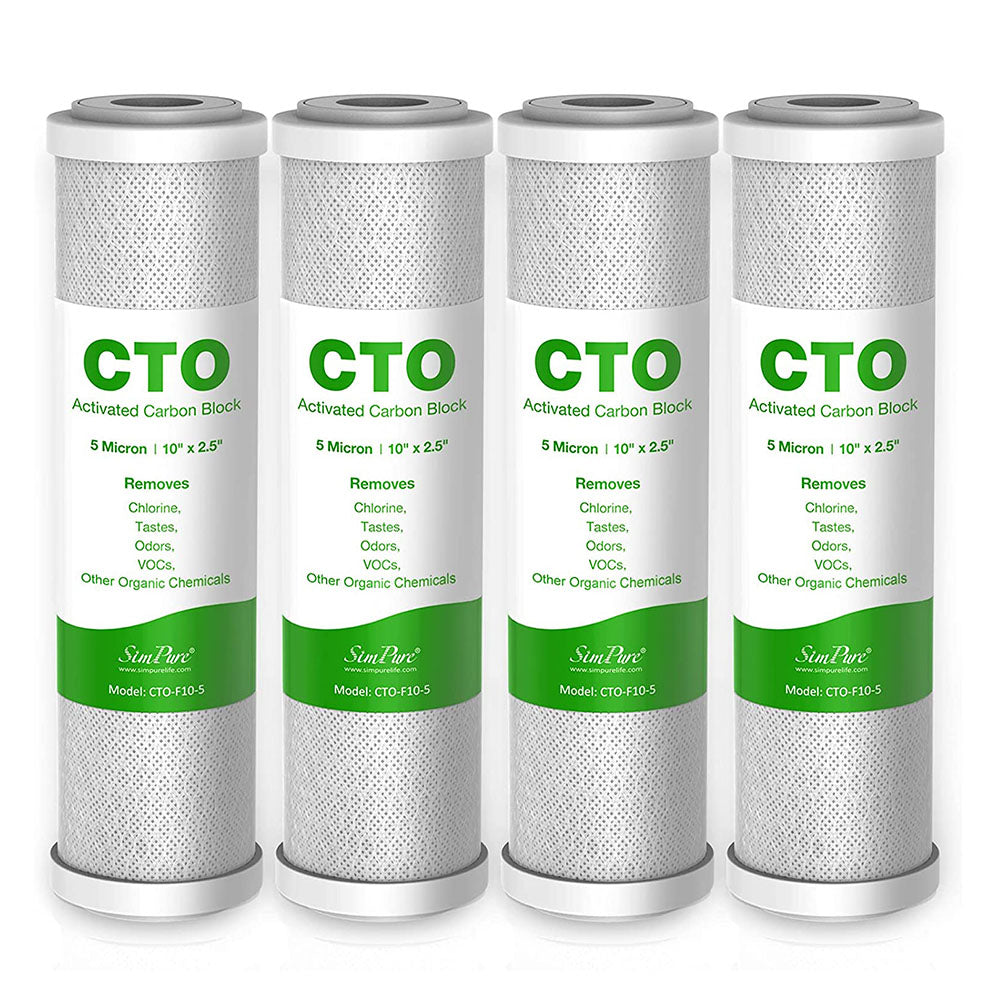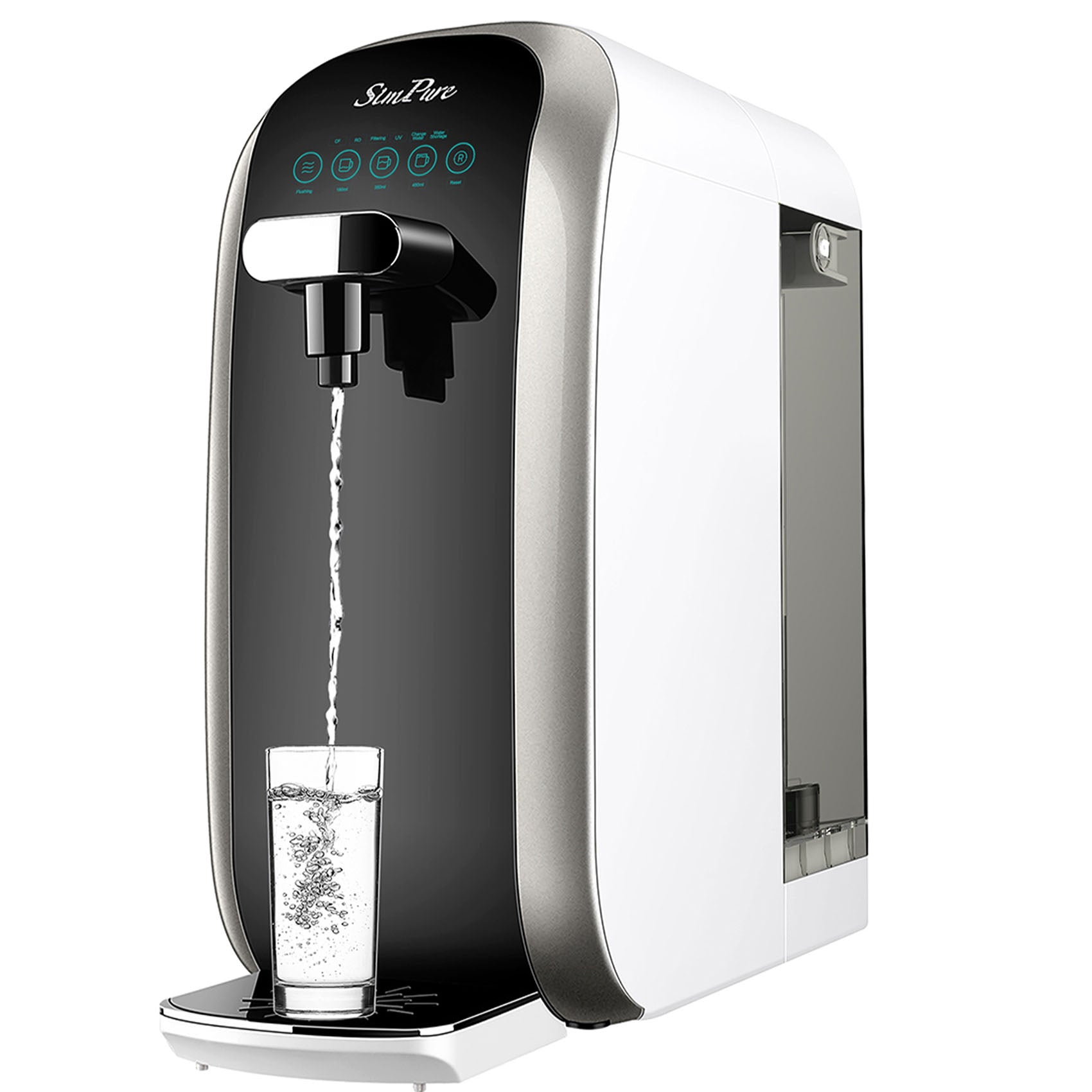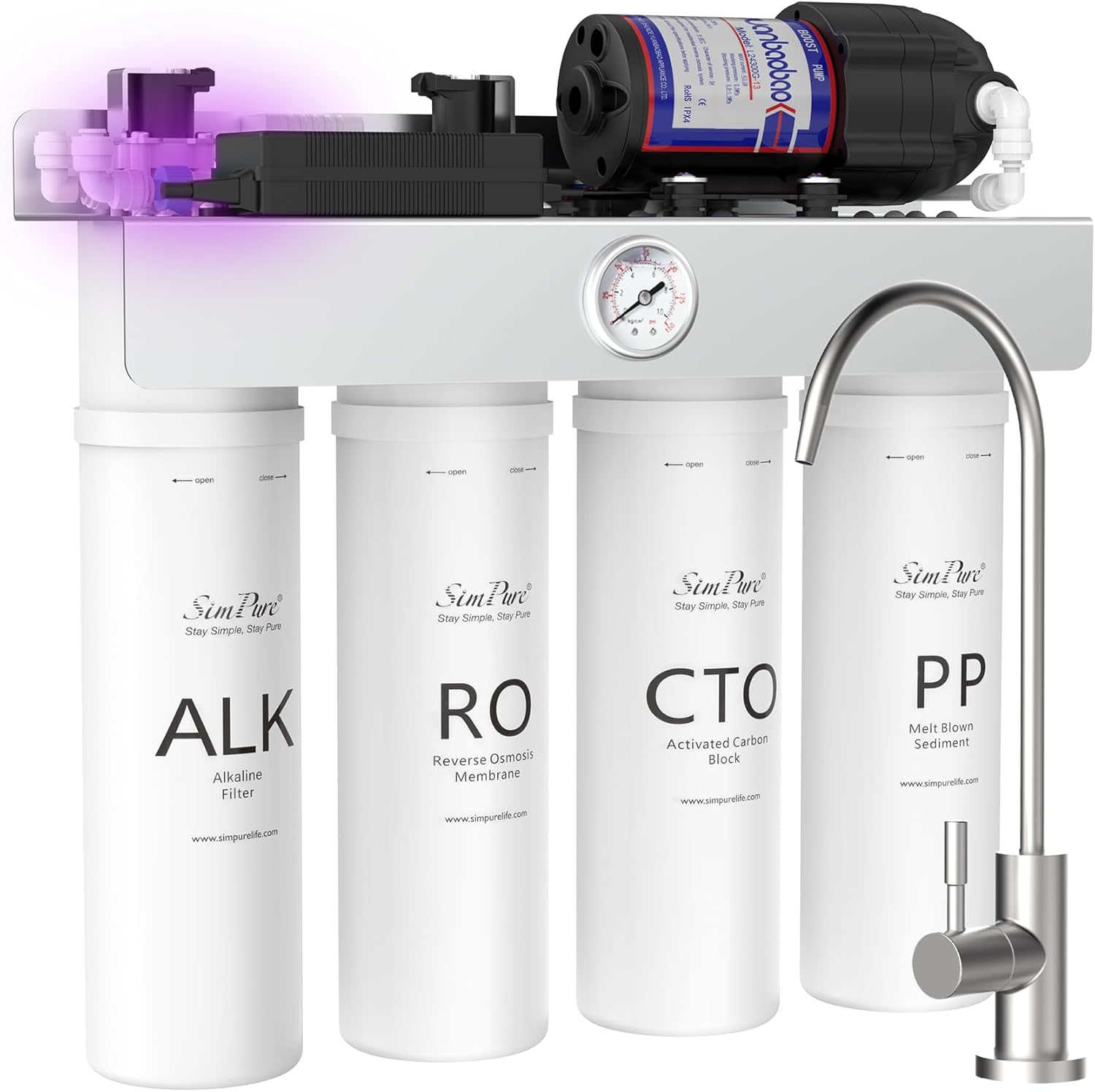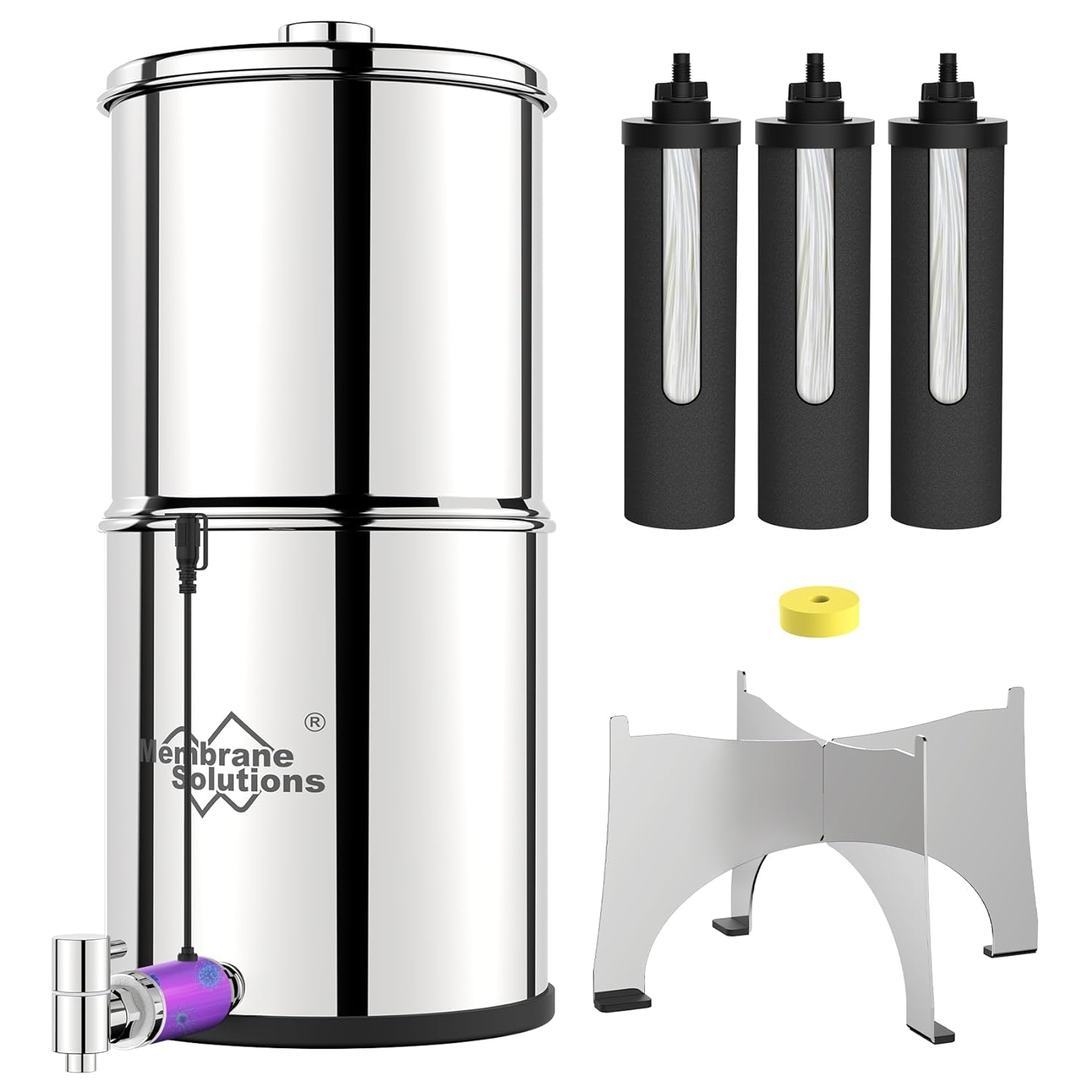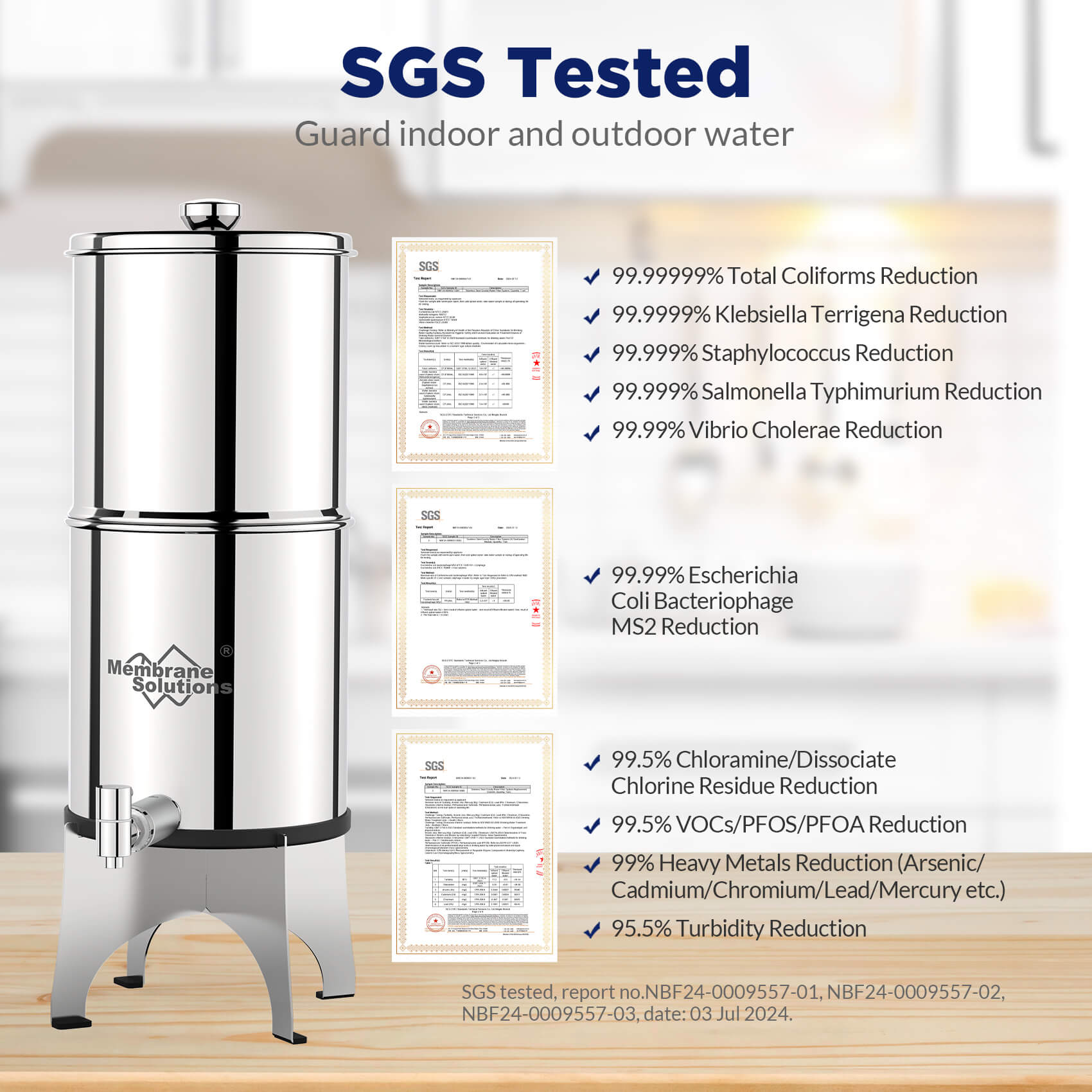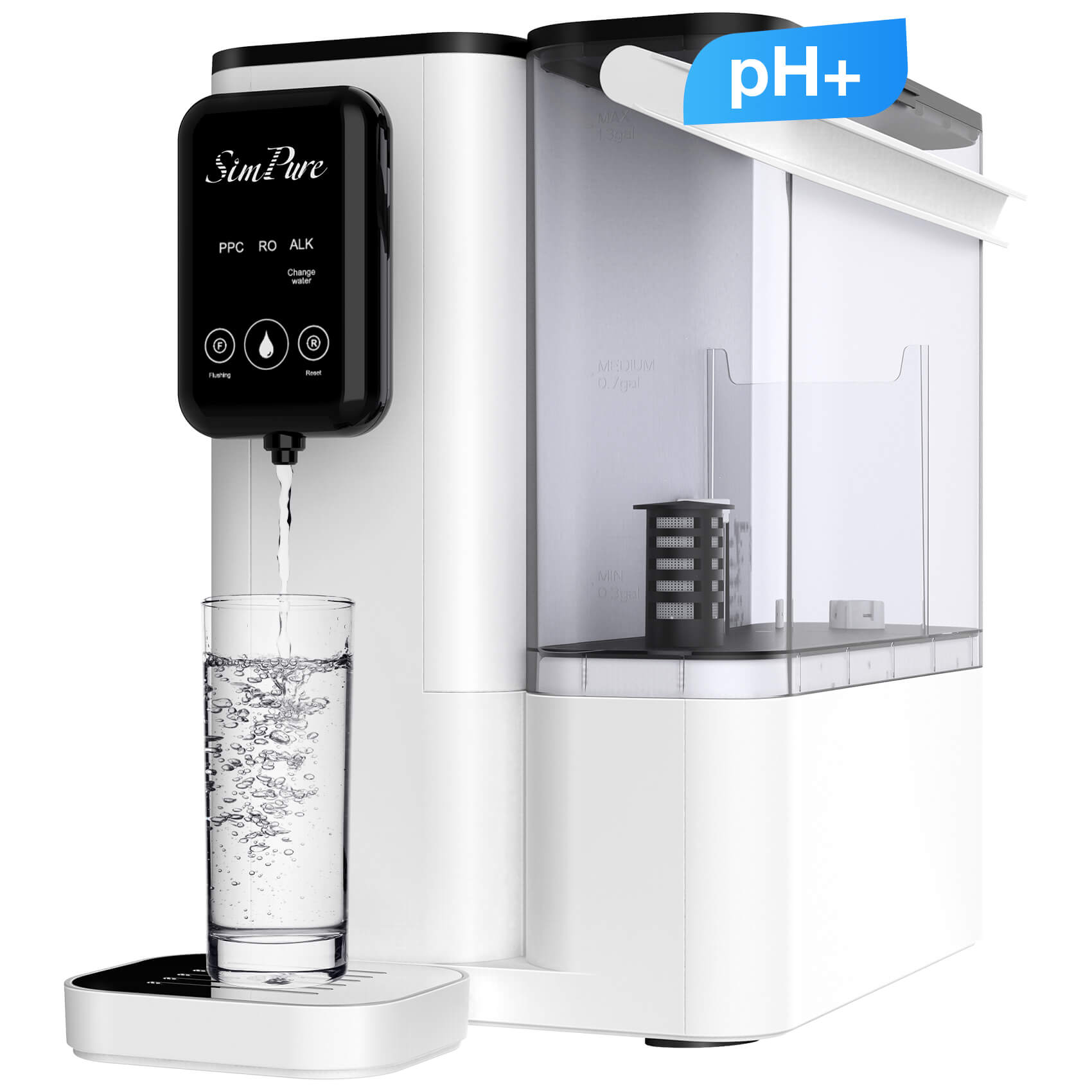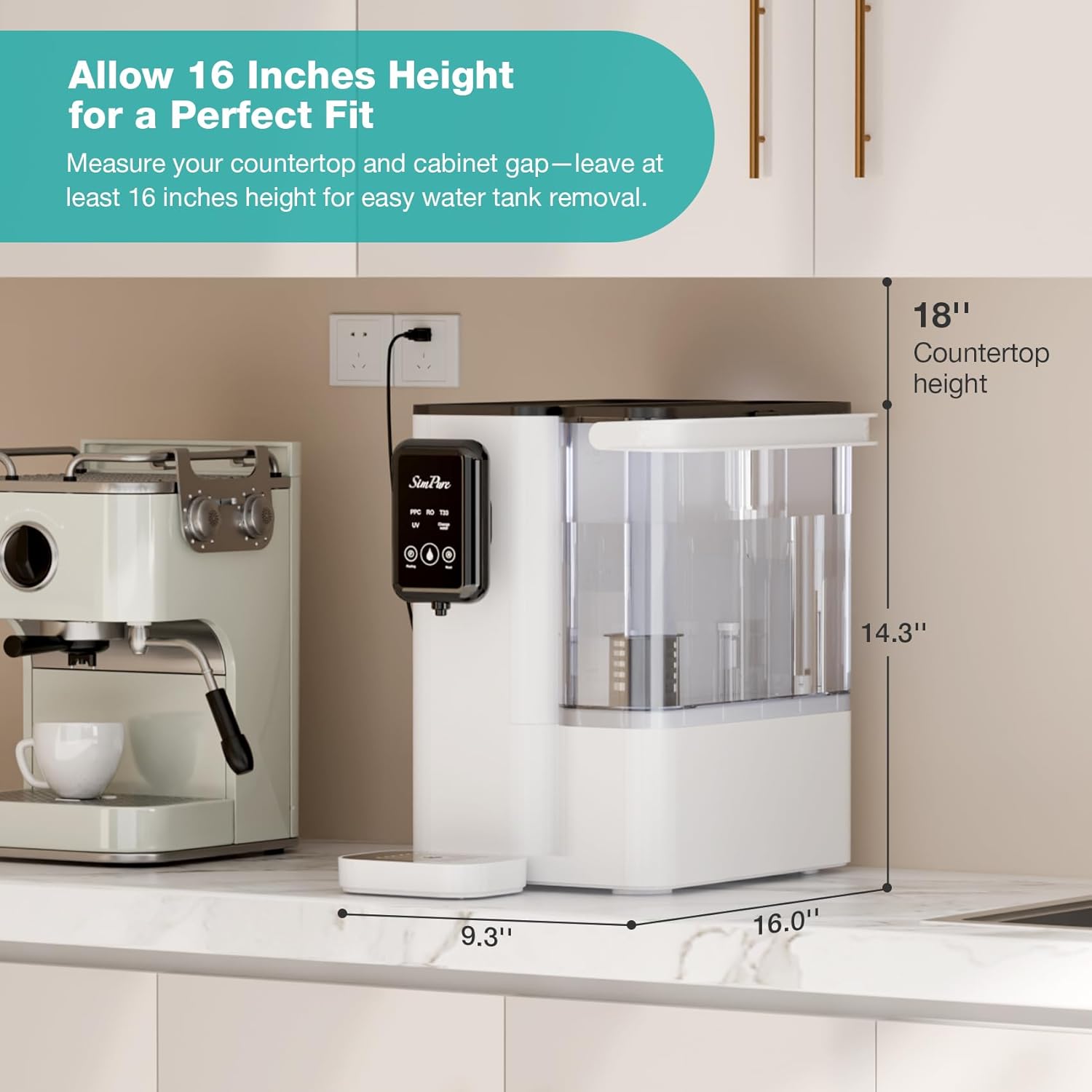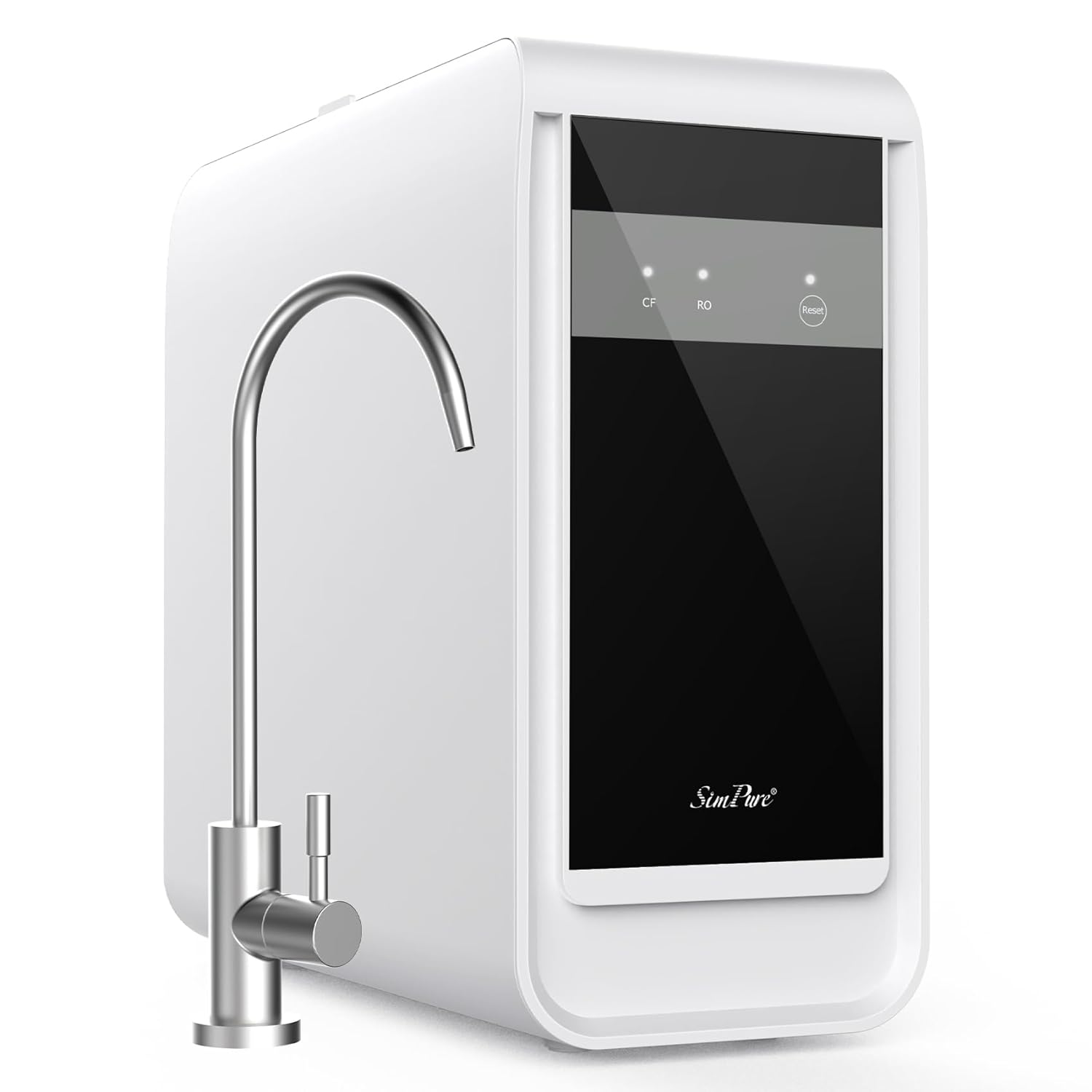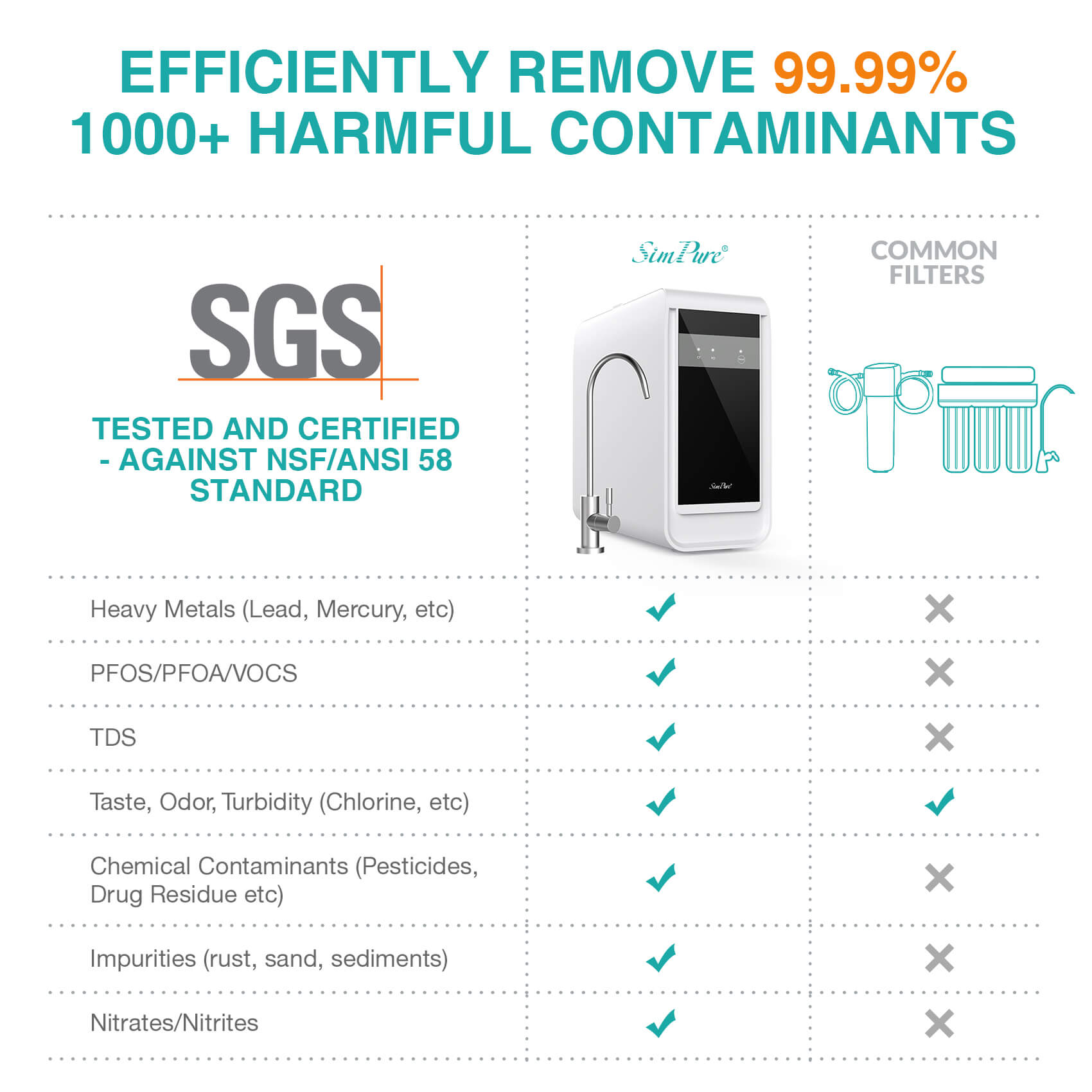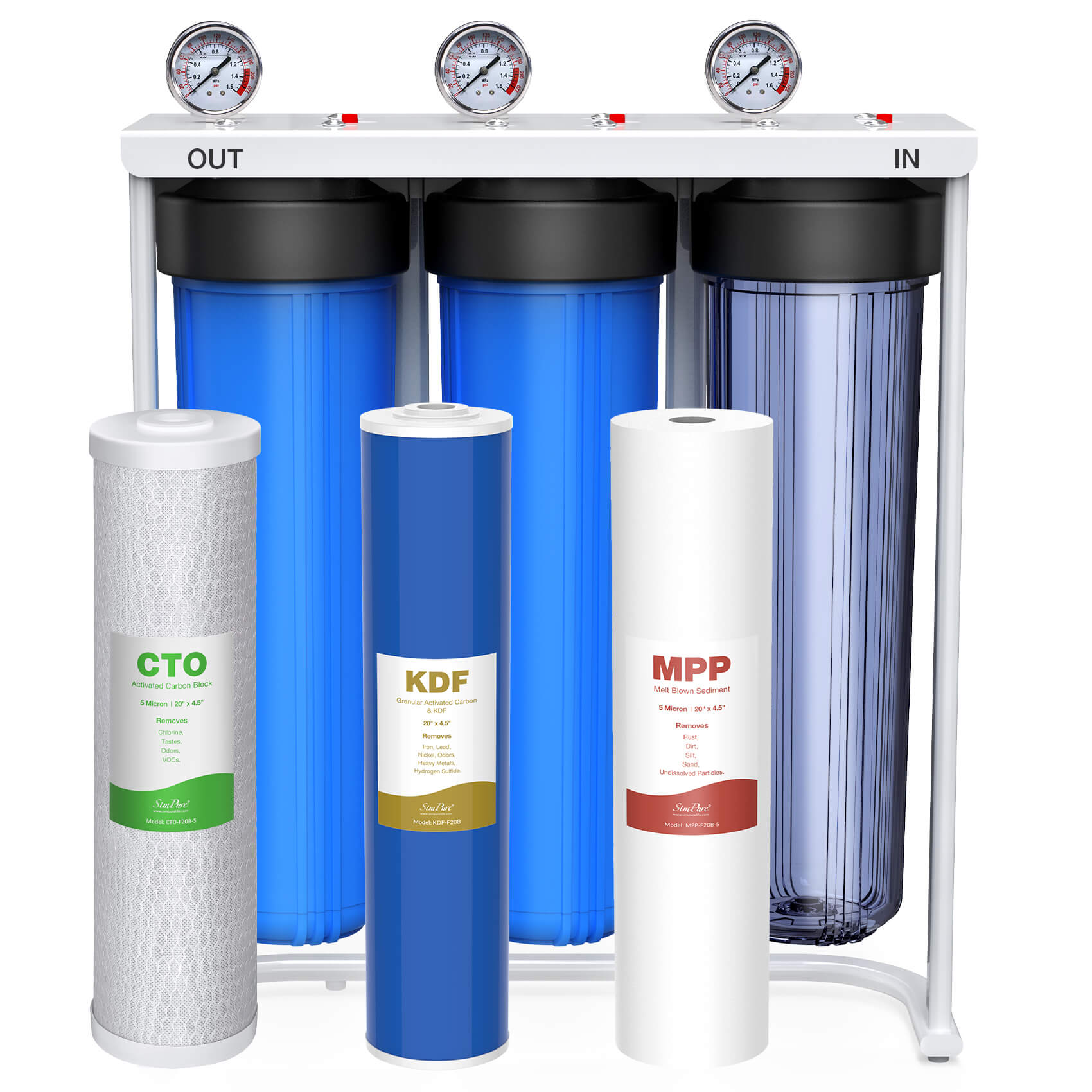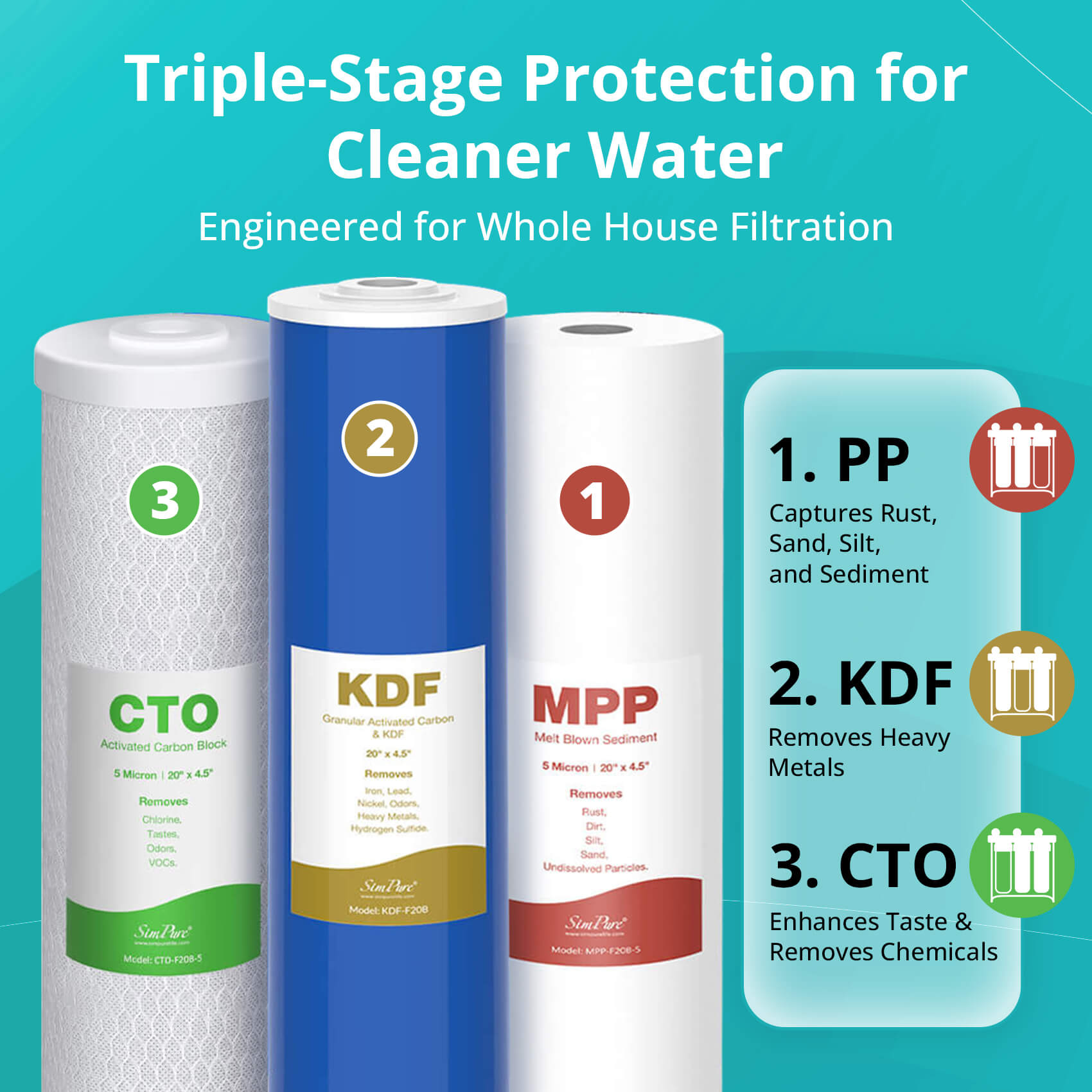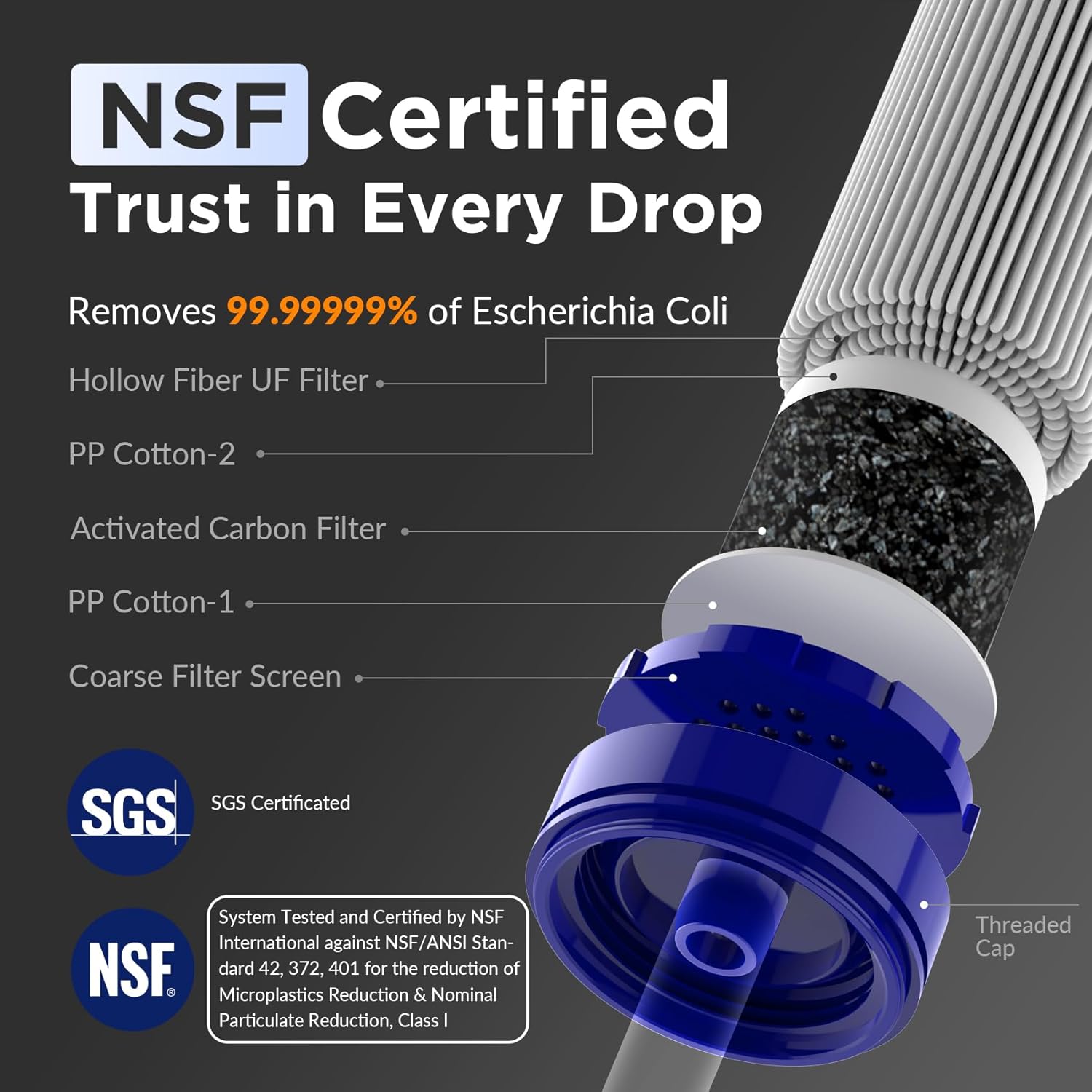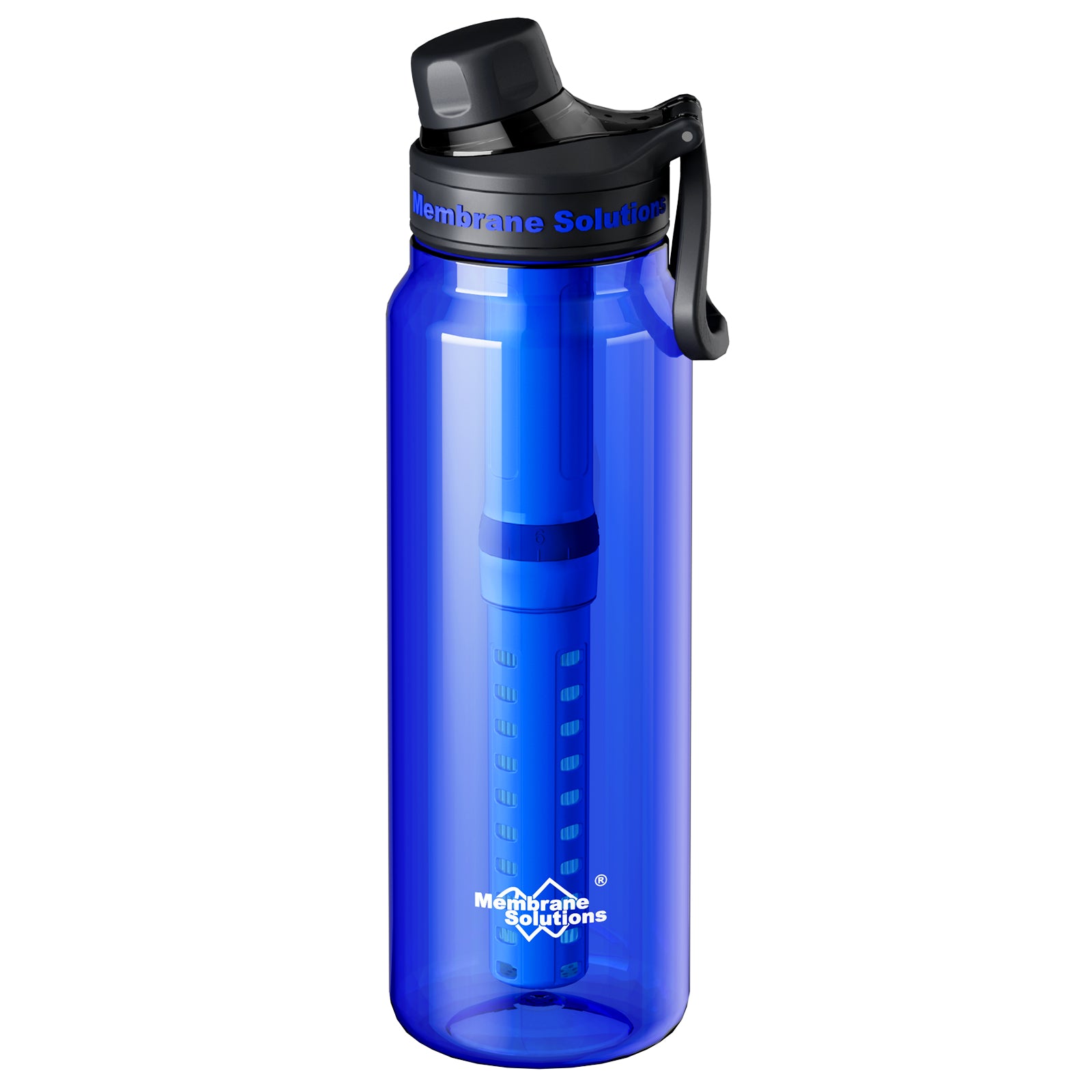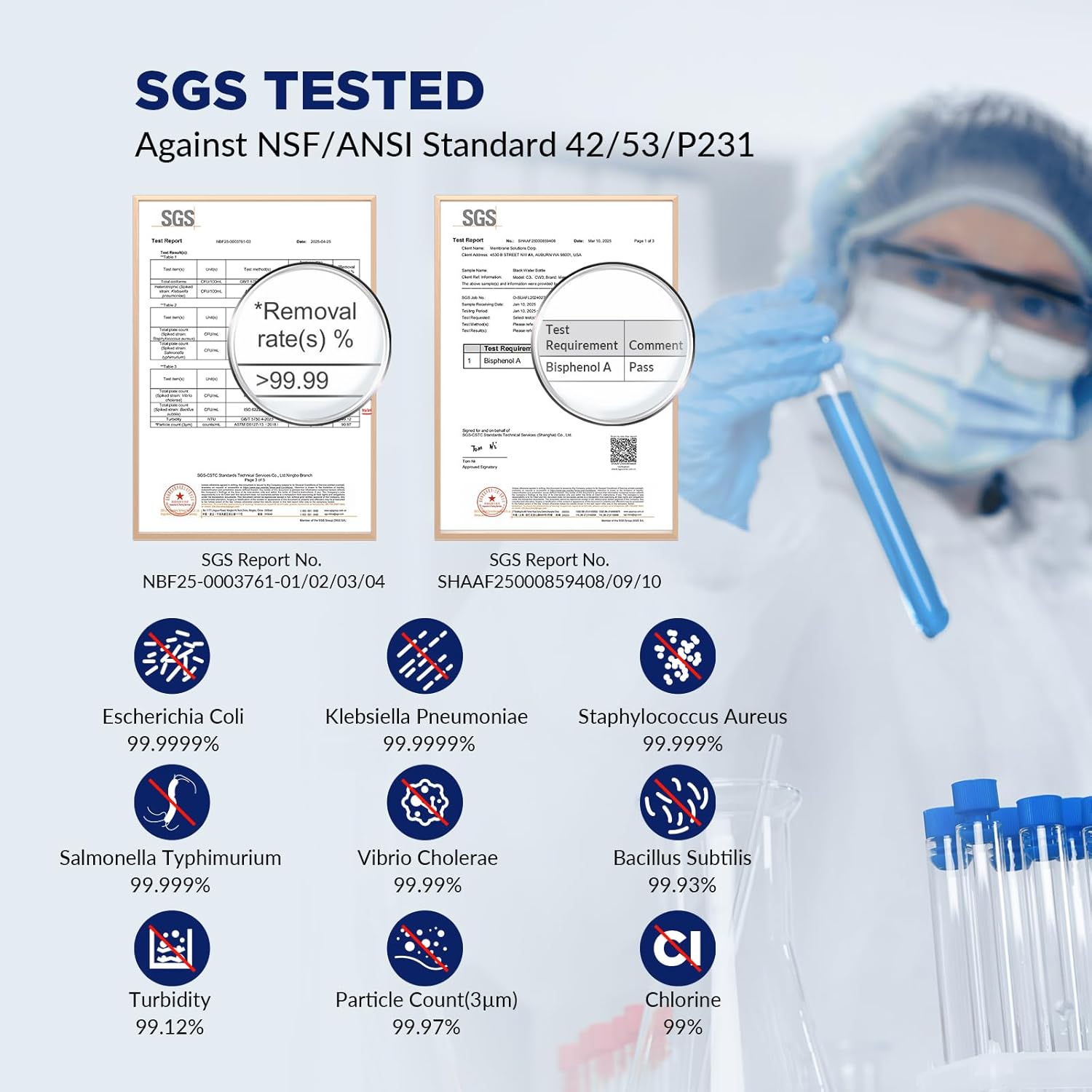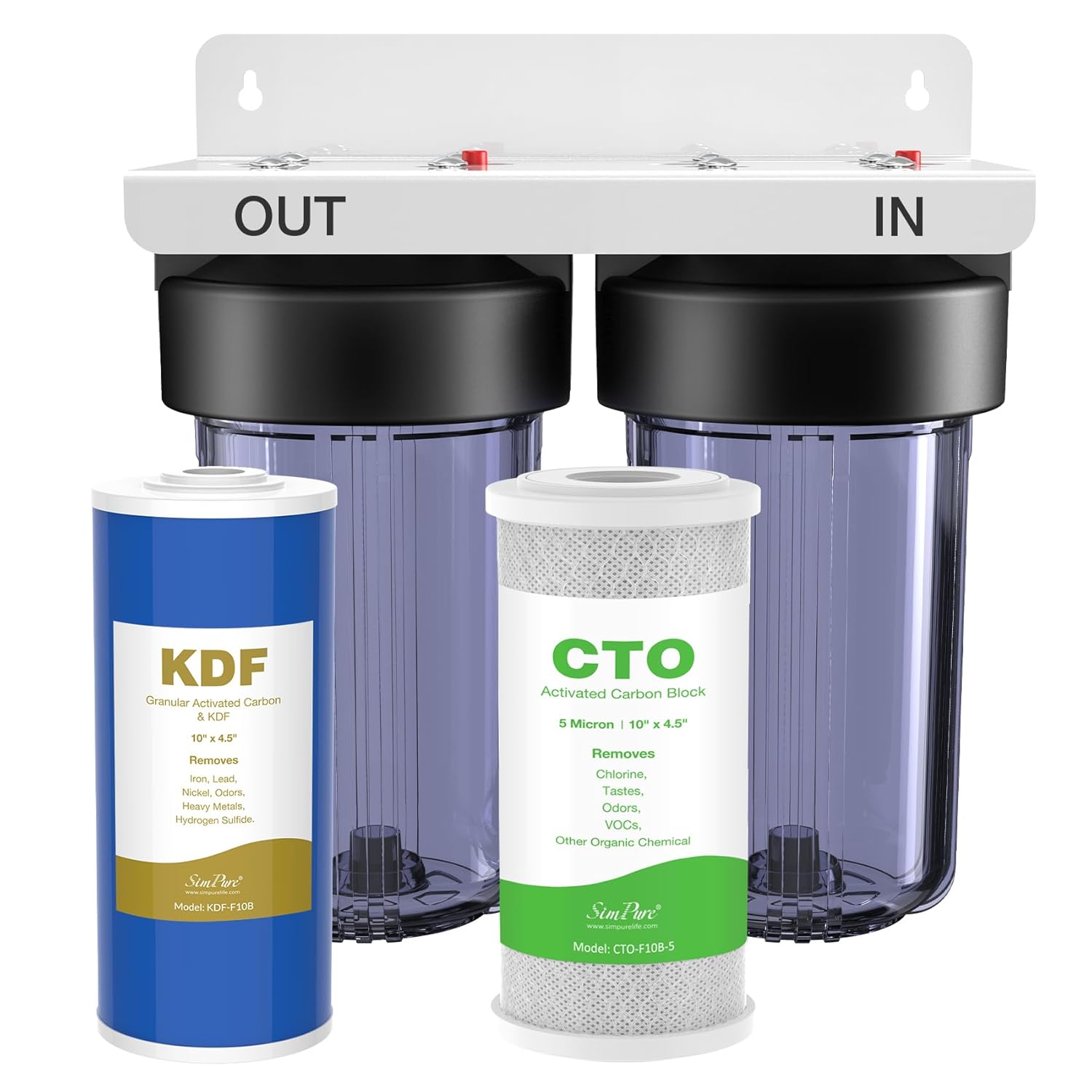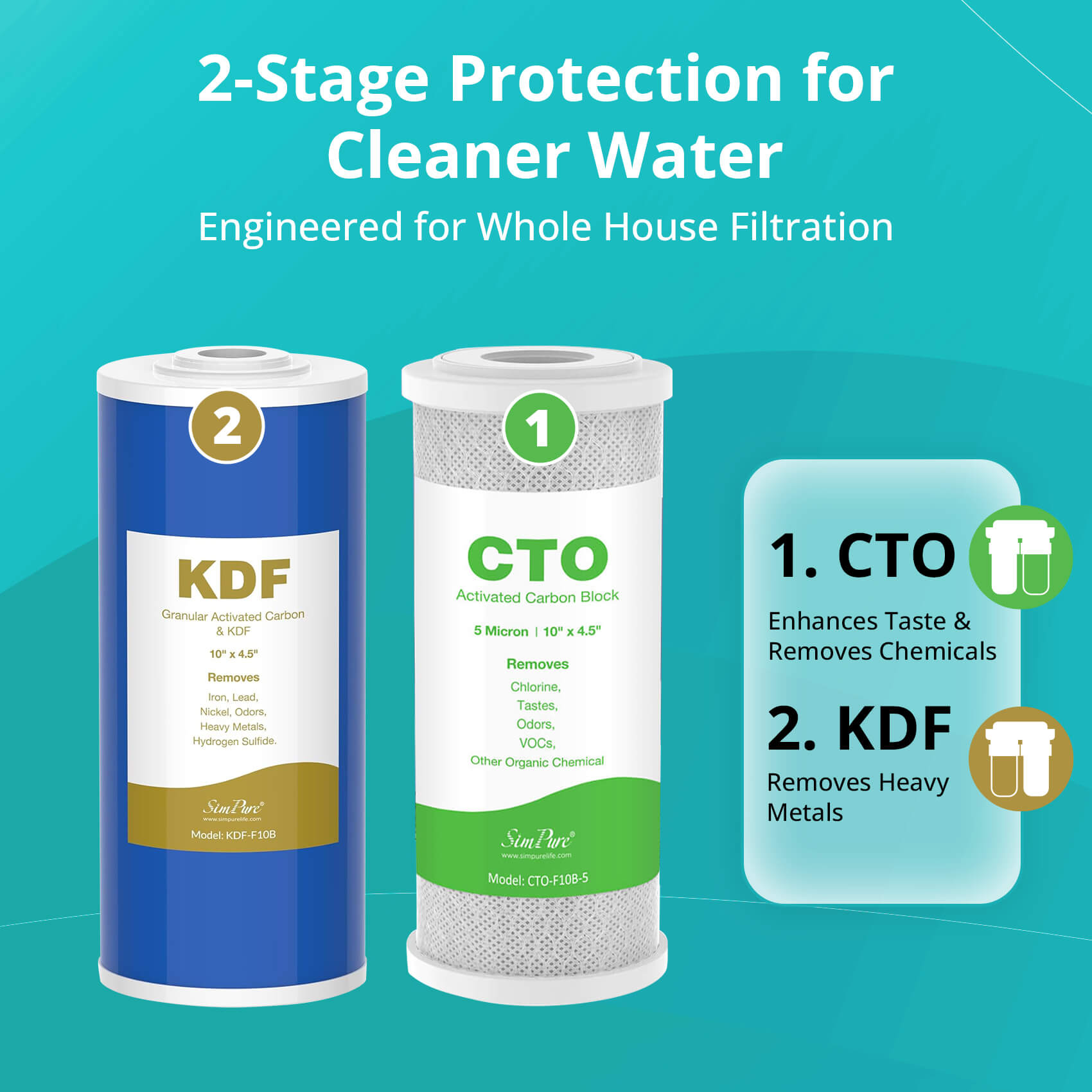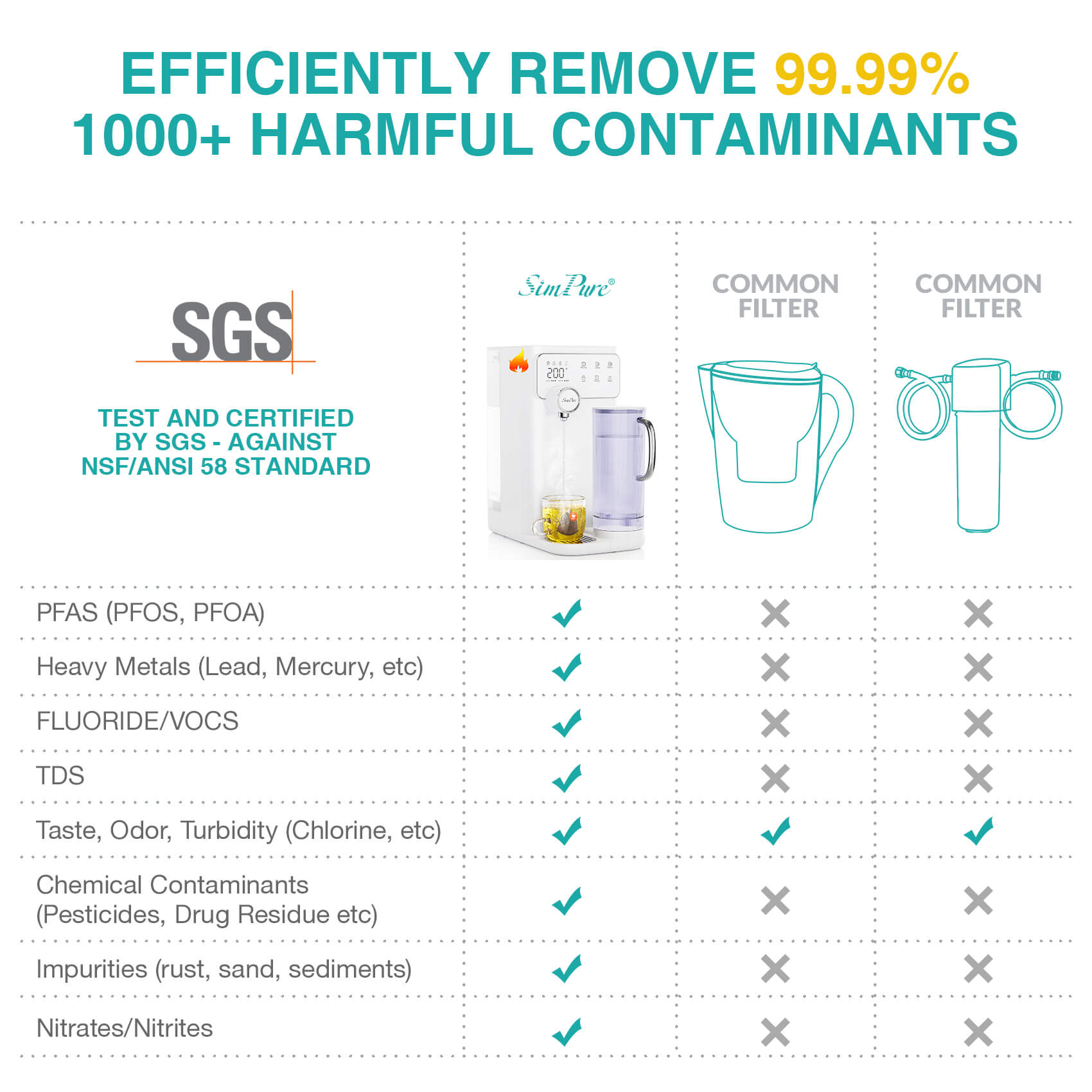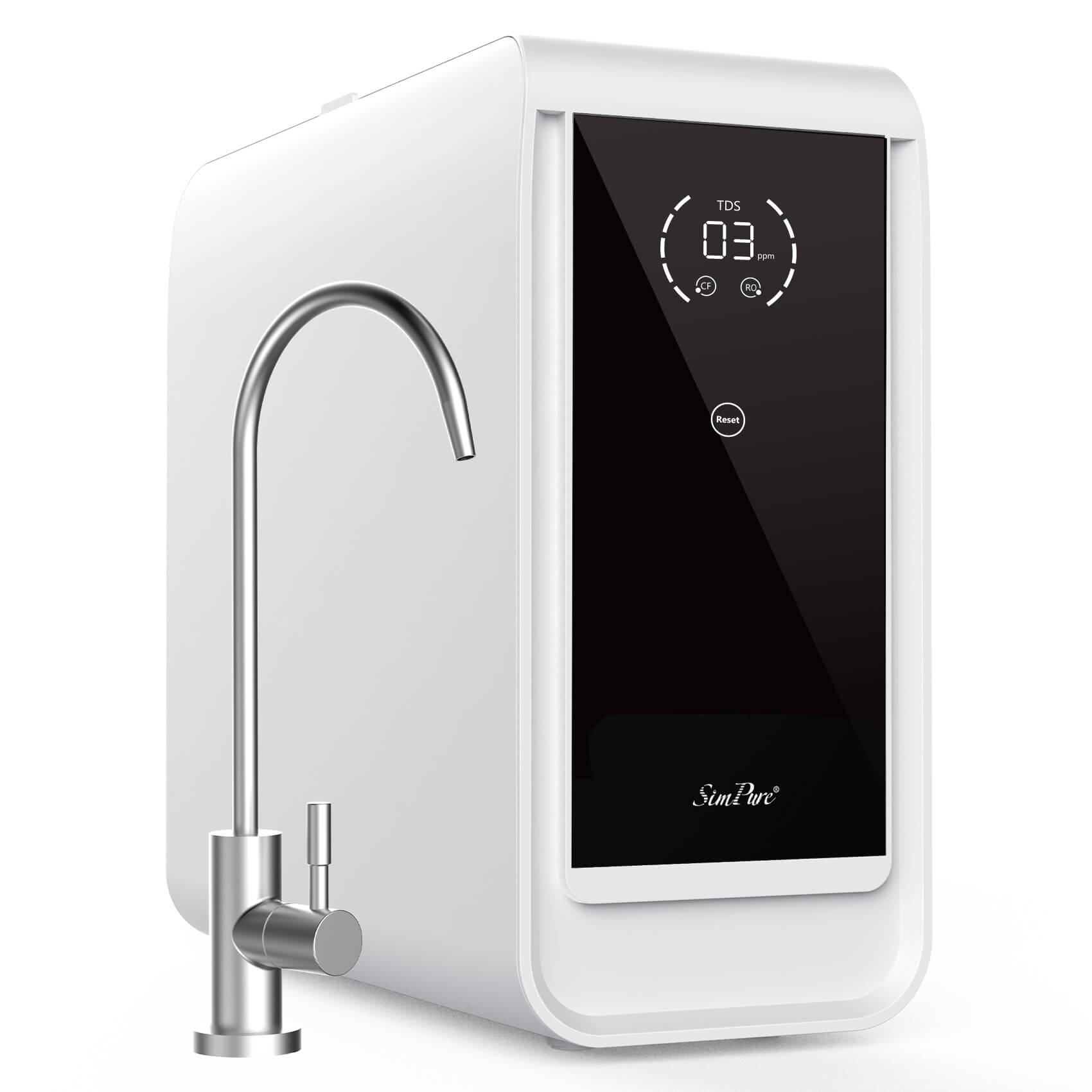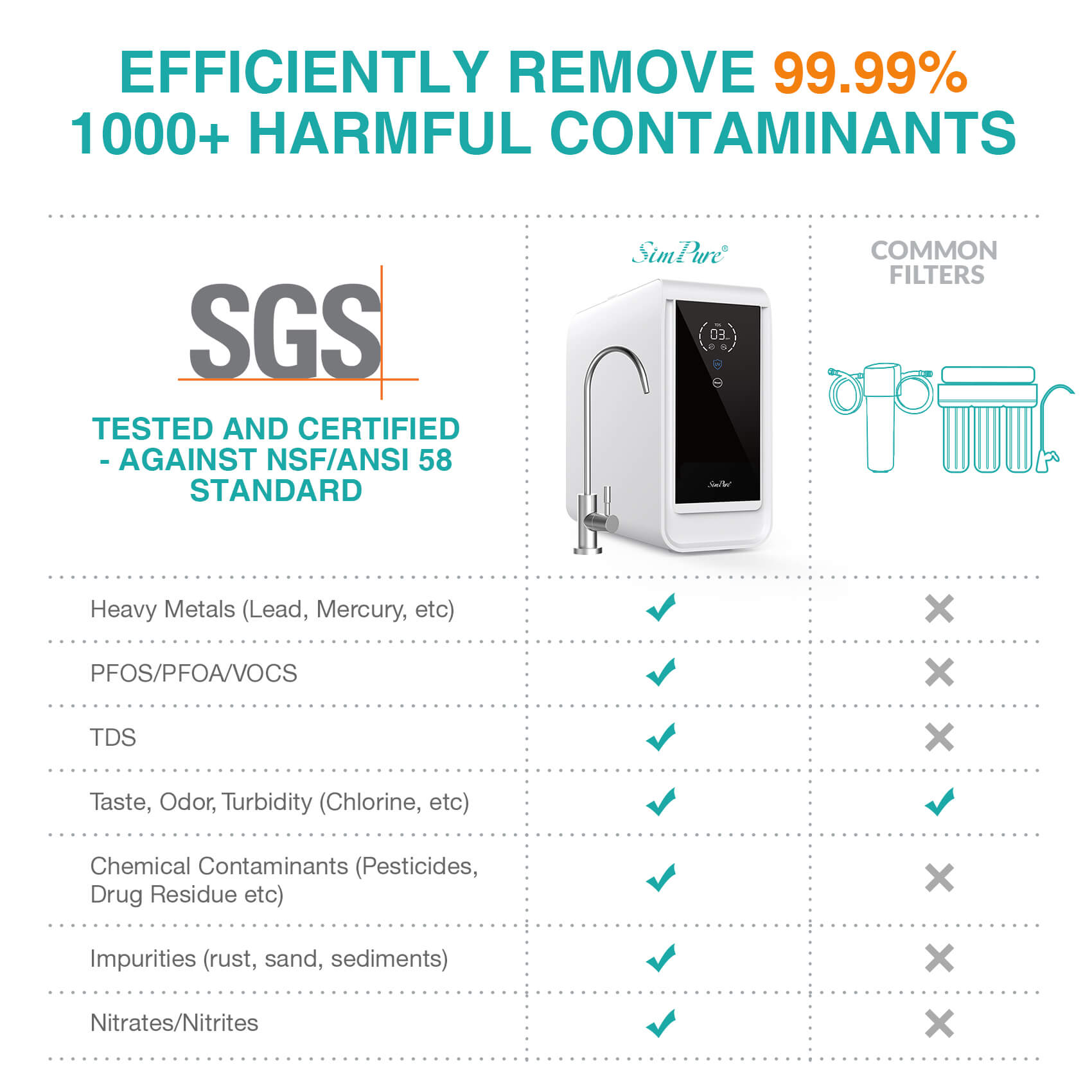Do water filters remove lead? And how to remove lead from water? These are questions of great concern to many water health seekers. Most water appliance salespeople claim that their water filters remove all harmful substances, but this is not the case. From the current technology point of view, there are several technologies for household water filters suitable for removing heavy metals including lead, one is activated carbon adsorption, the other is KDF (copper-zinc alloy) electrochemical reaction, and the third is RO reverse osmosis membrane filtration.Therefore water filters definitely can remove lead from water. Let’s discuss which water filters remove lead and what type of water filter removes lead in detail.
Do Water Filters Remove Lead: Different Type of Water Filters Vary
Which water filters remove lead depends on the composition of the water filter. Generally, there is only filtration (there are two groups of filter buckets for coarse filtration and fine filtration) and water filters adsorbed by activated carbon, which can only remove solid particles in the water and adsorb excess water from tap water. Chlorine, which cannot convert hard water into soft water, cannot remove lead ions from the water. Here are three basic water filters that can remove lead.
1. Does reverse osmosis remove lead?
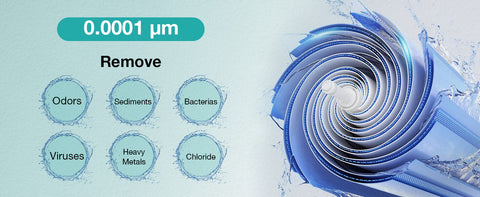
What type of water filter removes lead is determined by the filtration pore size of the membrane. The filtration pore size of the ultrafiltration membrane is generally 0.01 microns, and the diameter of lead ions is 0.28 nanometers, which can completely pass through the pore size of the ultrafiltration membrane, so the ultrafiltration membrane cannot filter out lead. Here you may ask, does reverse osmosis remove lead? Reverse osmosis water filters do remove lead. The filtration pore size of the RO membrane is 0.0001 micron or 0.1 nanometer, so reverse osmosis can remove most of the heavy metal ions including lead such as our top rated SimPure Y7P reverse osmosis system.
2. Does activated carbon remove lead?
Activated carbon removes lead from water through a process called adsorption. The porous surface of activated carbon attracts and traps lead ions as water passes through, effectively removing them from the water. To effectively remove lead, activated carbon filters typically require a micron size of 5 microns or smaller. This smaller micron size ensures that the activated carbon can capture even the smallest lead particles present in the water, providing thorough filtration. The adsorption of activated carbon can remove some heavy metals (mercury, silver, cadmium, chromium, lead, nickel, etc.) in water. Thus you may have an answer to the question of does activated carbon remove lead. The removal rate has a lot to do with the quality of activated carbon. Activated carbon includes coal-based carbon, fruit shell activated carbon, bamboo charcoal, etc. The best is coconut shell-activated carbon. Different types of activated carbon filters also vary widely in price, so it is best to choose a product from a reliable brand.
3. What else helps for removing lead?
KDF can remove lead from water through displacement reactions and physical and chemical adsorption reactions. KDF (Kinetic Degradation Fluxion) filters remove lead from water through a redox (reduction-oxidation) reaction. As water flows through the filter, lead ions undergo an electron exchange with the KDF media, transforming into a non-toxic form. This process effectively neutralizes lead contaminants, making the water safe for consumption. KDF filters typically target particles larger than 0.5 microns, effectively capturing lead particles and preventing them from passing through the filter. This micron size is sufficient to trap most lead contaminants, ensuring that the filtered water meets safety standards and is suitable for drinking and other household uses.
Among these 3 water filters, RO reverse osmosis water system for home is currently the most ideal water filter for lead removal, belonging to the middle and high-end water filters. So the answer to do water filters remove lead is apparently yes if you have selected the right types of water filters.
3 More Tips for Solving the Lead

Lead is found in small amounts in drinking water, but drinking water containing lead over a long period of time can be harmful. Because lead is deposited in the body and not easily removed, here are three suggestions for reducing lead content.
1. When running water is not used for more than six hours, be sure to turn on the tap and rinse for two to three minutes before use, because the lead content of the water in the pipeline is very high at this time.
2. Hot water is now available in many homes, but it is best not to use it for drinking or cooking because the lead content in hot water is many times higher than that in cold water.
3. If possible, you can install household water purifier (reverse osmosis water filter is much suggested), because its multi-level filtration function can effectively remove lead, ensure the safety of drinking water.
In summary, due to the frequent occurrence of lead exceeding the standard, removing lead has become an essential effect of water filters. We all know that the use of water filters can remove heavy metals from water, so do water filters remove lead from water? The answer is yes, but not all water filters can effectively remove lead from water. At present, the water filters with the best lead removal effect are water filters with high-purity copper-zinc alloy (KDF) filter elements and reverse osmosis water filters.


